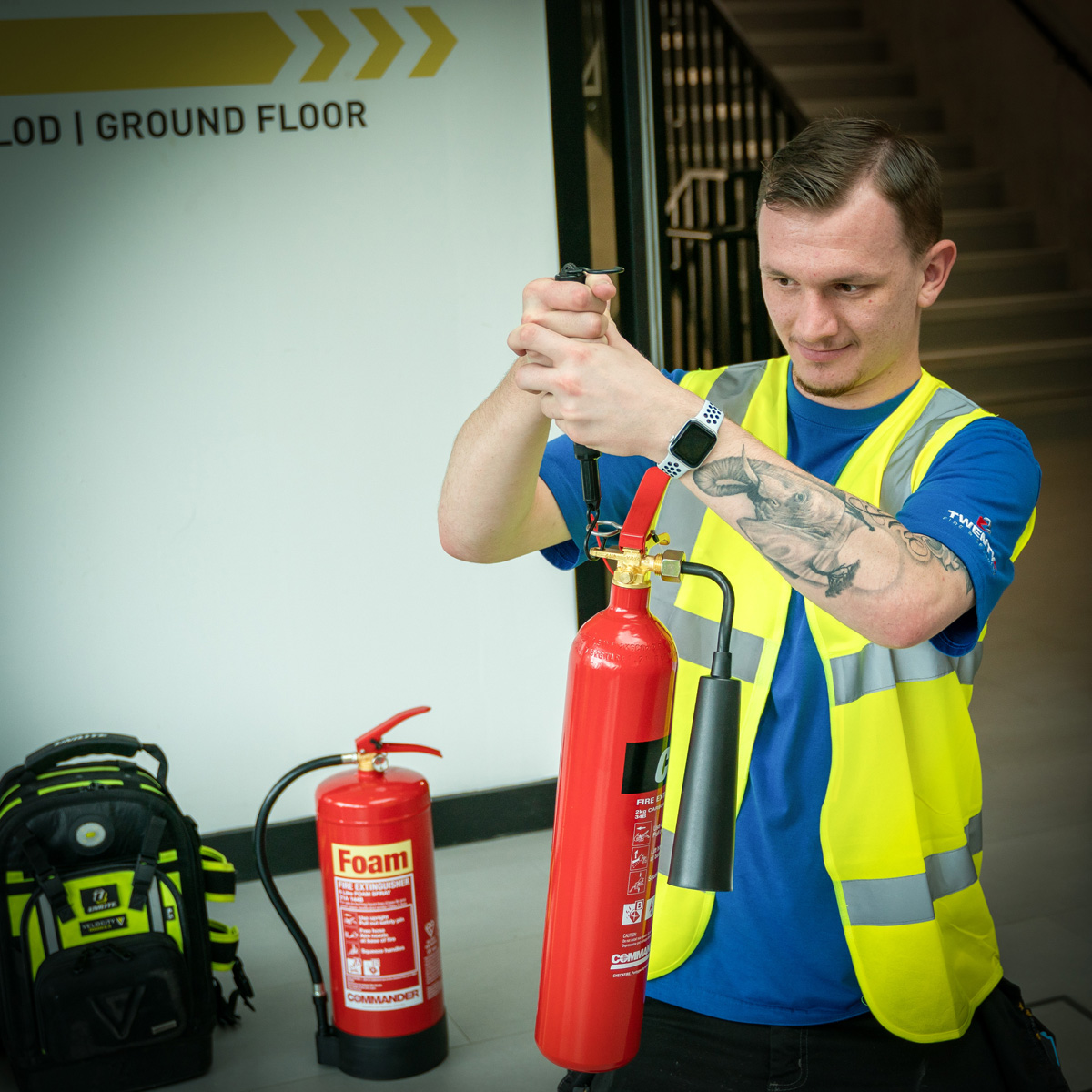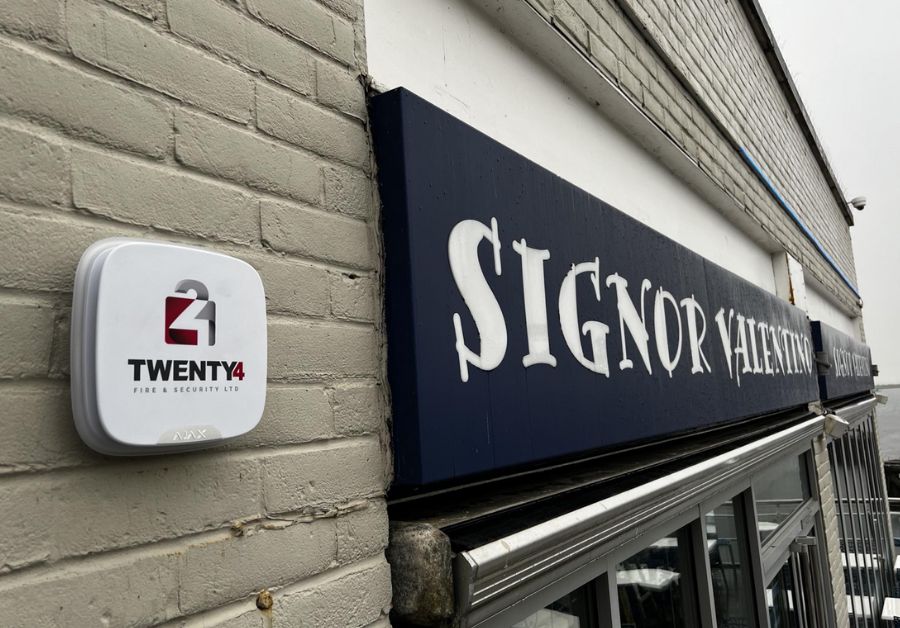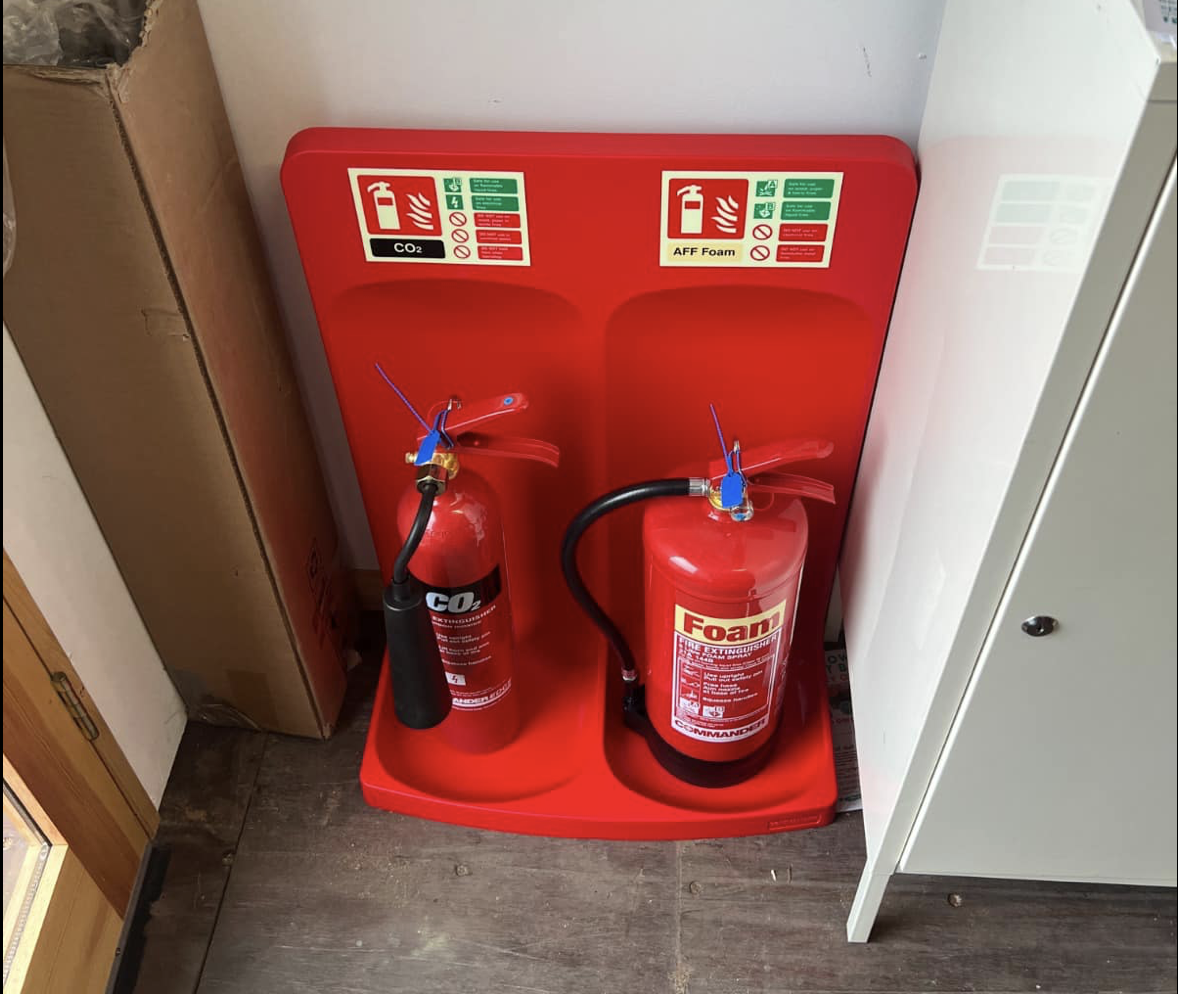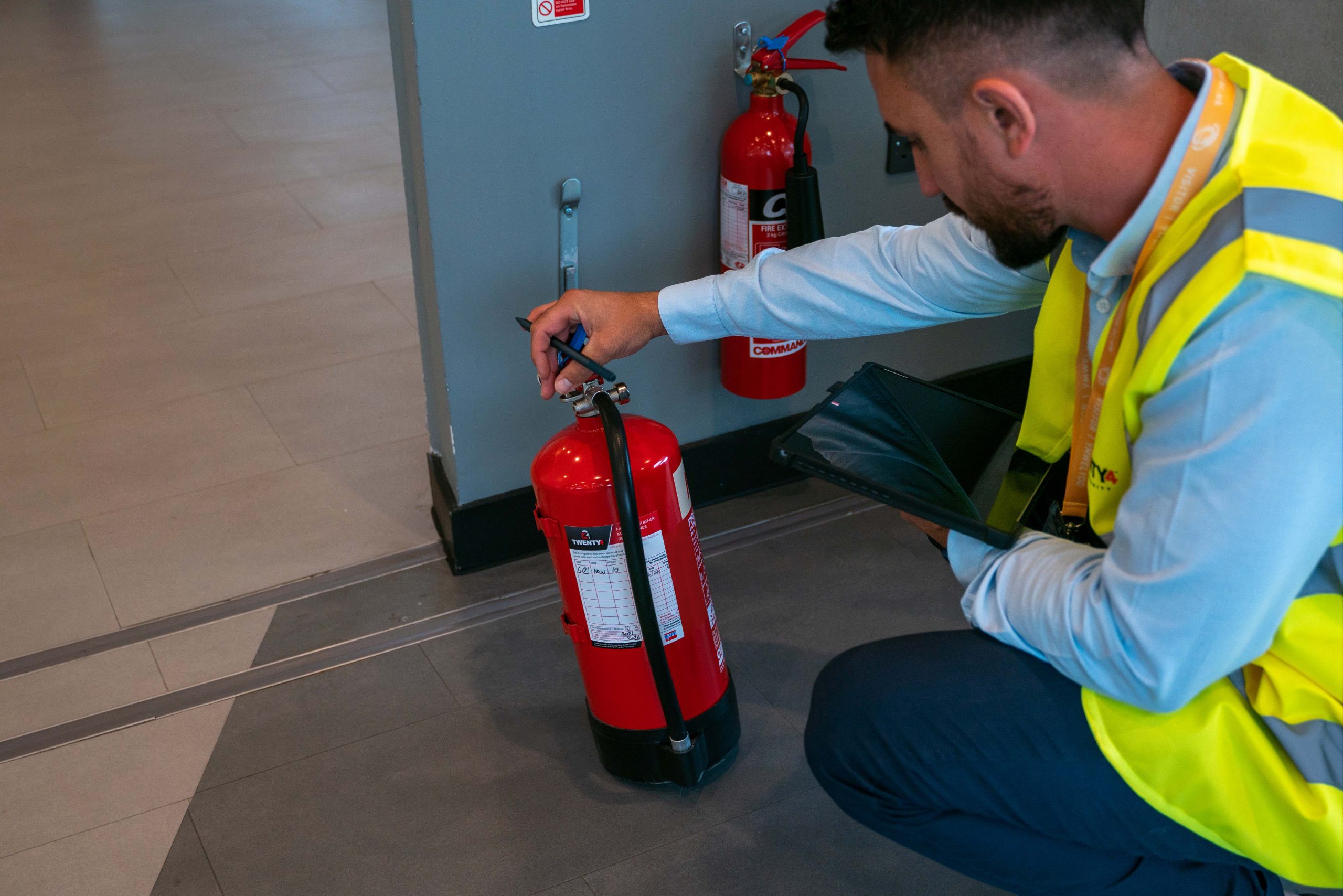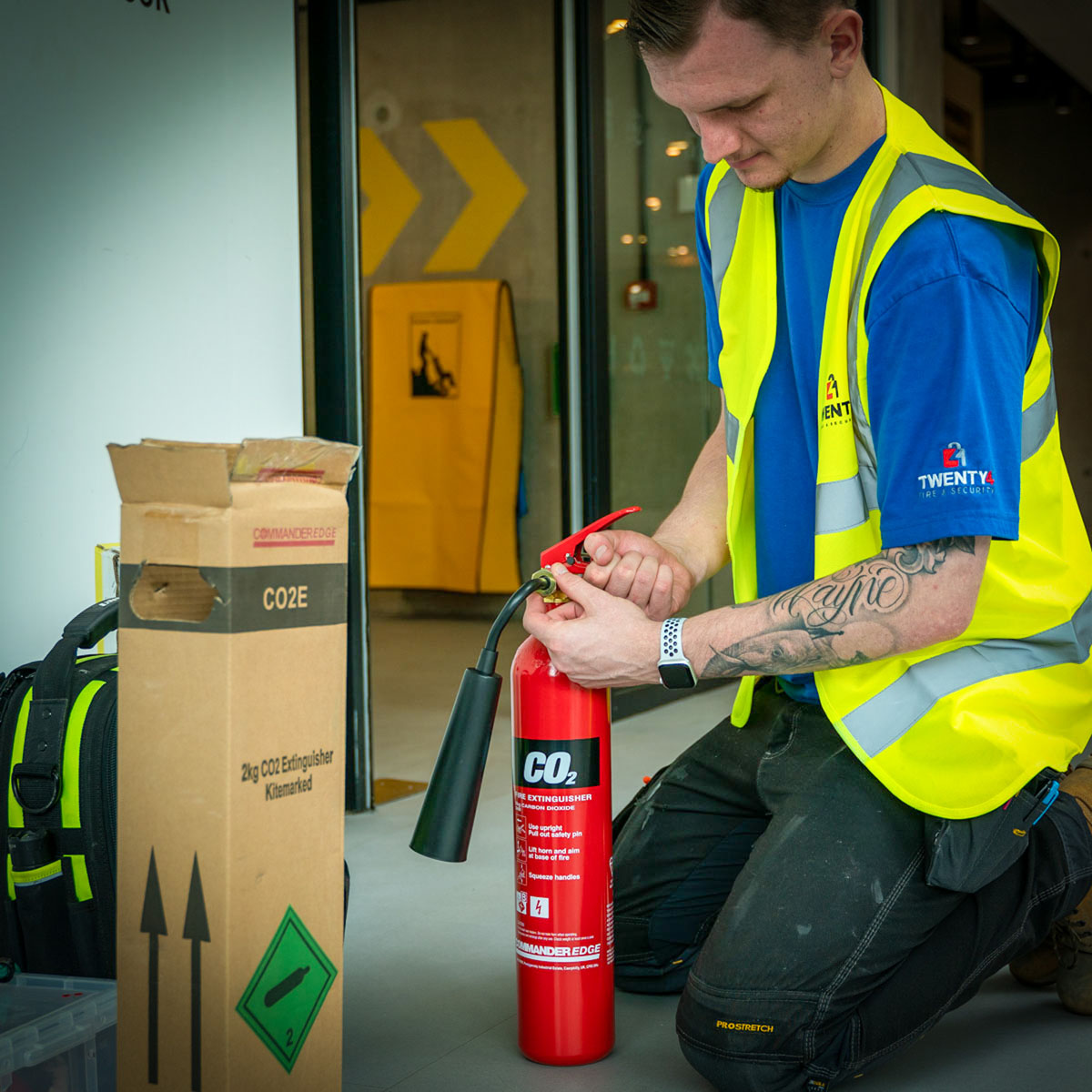Fire safety is a critical aspect of managing any workplace. One of the fundamental elements of fire safety is ensuring the right fire extinguishers are available and accessible.
1. Ineffective Fire Response
The most immediate risk of not having the right type of fire extinguisher is the inability to effectively respond to a fire. Different extinguishers are designed to handle different classes of fires:
- Water extinguishers for Class A fires (common combustibles like wood and paper)
- CO2 extinguishers for Class B fires (flammable liquids) and electrical fires
- Dry powder extinguishers for Class C fires (flammable gases)
- Wet chemical extinguishers for Class K fires (cooking oils and fats)
Using the wrong type of extinguisher on a fire can be ineffective and, in some cases, dangerous. For example, using a water extinguisher on an electrical fire can cause electrocution.
2. Increased Damage and Recovery Costs
Ineffective firefighting not only fails to control the fire but can also increase damage. For instance, a fire that could have been extinguished quickly with the right type of extinguisher might spread, causing more extensive damage to property and potentially leading to longer downtime for the business. This means higher repair costs, increased insurance premiums, and potential loss of business.
3. Legal and Financial Repercussions
Under the Regulatory Reform (Fire Safety) Order 2005 in the UK, employers are required to ensure that fire fighting equipment is suitable for the purpose and sufficient to safeguard the safety of employees. Non-compliance can lead to significant legal repercussions, including fines and, in severe cases, imprisonment. Additionally, if found negligent, employers could face civil litigation from affected parties.
4. Endangering Lives
The most severe consequence of not having the right fire extinguishers is the risk to life. Fires that are not controlled effectively can quickly escalate, endangering the lives of everyone in the building. Inadequate fire response can lead to injuries and fatalities, which are tragic and can also result in severe legal consequences for the business.
5. Damaged Reputation
A business that fails to ensure proper fire safety measures may suffer from a damaged reputation. Clients, suppliers, and potential hires may view the company as negligent, which can lead to loss of business opportunities and difficulties in recruitment.
Ensuring the Right Fire Extinguishers Are in Place
To avoid these risks, it’s crucial for businesses to:
- Conduct regular fire risk assessments to identify what type of fire extinguishers are needed and where they should be placed.
- Train employees on the types of fire extinguishers available and how to use them correctly.
- Maintain and check fire extinguishers regularly to ensure they are in working order and accessible in the event of a fire.
Also, remember that fire extinguisher upkeep is very important!

